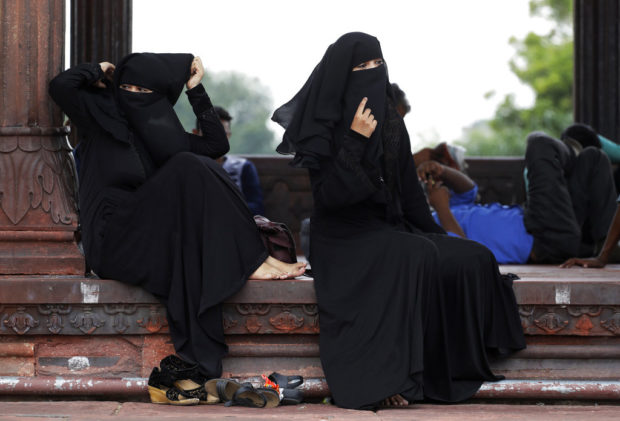India bans instant divorce by Muslim men

In this Aug. 22, 2017 file photo, Indian Muslim women rest inside Jama Masjid mosque in New Delhi, India. AP
NEW DELHI — India’s government on Wednesday approved an ordinance to implement a top court ruling striking down the Muslim practice that allows men to instantly divorce.
The government decision came after it failed to get approval of Parliament a year after the court ruled that the practice of triple “talaq” violated the constitutional rights of Muslim women.
Most of the 170 million Muslims in India are Sunnis governed by the Muslim Personal Law for family matters and disputes. The laws include allowing men to divorce by simply uttering the Arabic word “talaq,” or divorce, three times — and not necessarily consecutively, but at any time, and by any medium, including telephone, text message or social media post.
The government will have another six months to get Parliament’s approval for the ordinance to become law. But in the meantime, suspects can be prosecuted using the ordinance.
Law Minister Ravi Shankar Prasad said that nearly 22 countries, including neighboring Pakistan and Bangladesh, have banned the practice and appealed to the opposition to approve the Muslim Women Protection of Rights on Marriage Bill.
Article continues after this advertisementIndia’s Muslim Law Board had told the court that while they considered the practice wrong, they opposed any court intervention and asked that the matter be left to the community. But several progressive Muslim activists decried the law board’s position.
Article continues after this advertisementAfter the Supreme Court verdict, Prime Minister Narendra Modi’s government introduced a bill criminalizing the practice and it was approved in December by the lower house of Parliament, where his party commands a majority. But it couldn’t get the approval of the upper house, where the opposition
controls the majority of seats.
The main opposition Congress party is opposing a three-year prison sentence for the offenders and wants a parliamentary committee to discuss the issue to reach a consensus. It favors a lesser sentence.
In India, triple talaq has continued with the protection of laws that allow Muslim, Christian and Hindu communities to follow religious laws in matters like marriage, divorce, inheritance and adoption. While most Hindu personal laws have been overhauled and codified over the years, Muslim laws have been left to religious authorities and left largely untouched. /ee